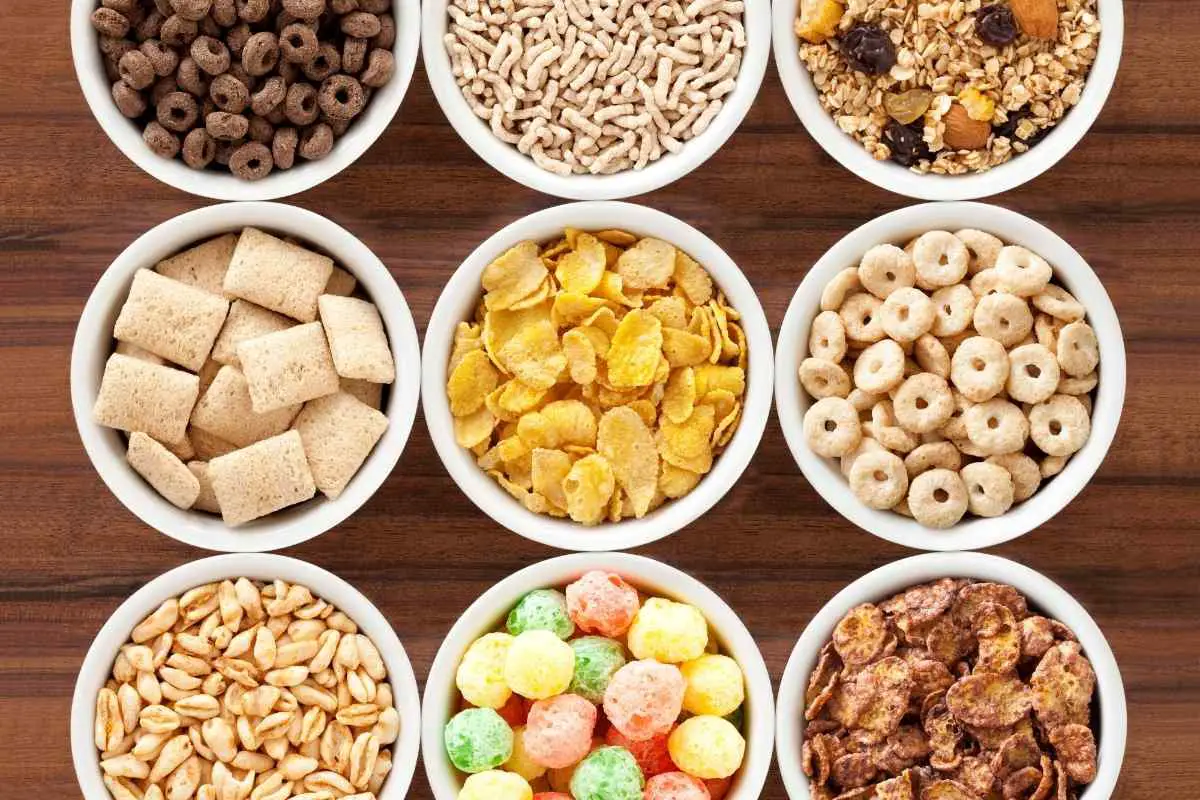The right breakfast cereal is not just a quick and easy snack for you but also for the wild birds in your garden! Wild birds can eat breakfast cereal but you will need to check the specific ingredients and avoid substances that could harm the birds.
In this concise guide, we explain the essentials of feeding breakfast cereals to the wild birds in your garden including advice on 12 common cereals you might be tempted to share.
Why Feeding Breakfast Cereals to Wild Birds Is a Good Idea
Breakfast cereals are usually just as tasty to birds as it is to you.
The wholegrain and fruit ingredients in many common breakfast cereals are delicious to most bird species who will hoover up any cereal you leave in a bird feeder or on a bird tray.
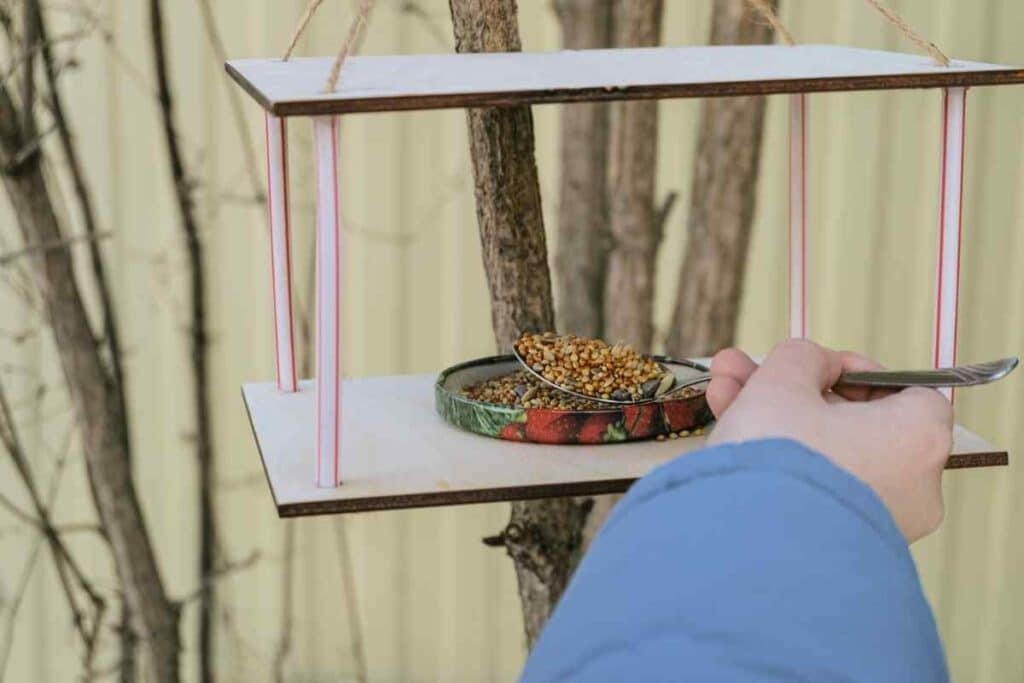
Stale or leftover cereal will not cause any harm to the birds, though if you are considering feeding breakfast cereal on a regular basis, you will need to be careful of ingredients that could affect birds if they are consumed in large quantities.
Key Ingredients to Watch out for When Feeding Cereal to Your Garden Birds
Birds are willing to eat anything and everything but if your breakfast cereal contains certain ingredients, they could cause your birds harm.
Look out for these ingredients:
- Salt: excessive salt can kill birds as it can disturb their fluid balance. Birds can also become dehydrated while searching for water once they have consumed a large quantity of salt.
- Sugar: many bird species do not have the digestive enzymes to process sucrose which can cause diarrhoea.
- Milk: you should not serve milk to birds as they lack the ability to digest milk. Certain species can even die from consuming milk products or whey powder.
- Additives, preservatives and flavourings: examples include Congo Red, soy lecithin and BHT. Some are frank poisons and others are carcinogenic.
12 Breakfast Cereals to Feed to Wild Birds
1. Can Wild Birds Eat Frosties
The sugar-coated corn flakes of frosties make them one of the most sugary breakfast cereals around.
And if they are two sweet for man, they’re certainly overkill for your garden birds. As mentioned above, birds struggle to digest sugar.
Despite the sweet taste, Frosties also have a significant amount of salt present meaning that it is wise to keep them to yourself.
If You Must: one or two flakes from the end of the cereal box are unlikely to do harm if left out occasionally.
2. Can Wild Birds Eat Lucky Charms?
Lucky charms is a popular brightly coloured American breakfast cereal that youngsters may want to share with their local garden birds.
It is extremely high in sugar and low in protein and fiber, meaning it will provide very little authentic nutritional benefit for wild birds.
Lucky Charms also use genetically modified (GM) corn, which may have unexpected effects on birds.
Studies have shown that the Red 40 food colouring in Lucky Charms may have mutagenic and carcinogenic effects on small animals like birds.
3. Can Wild Birds Eat Cornflakes?
If the humble cornflake is being neglected in the back of your cupboard, you can confidently offer this breakfast cereal to wild birds.
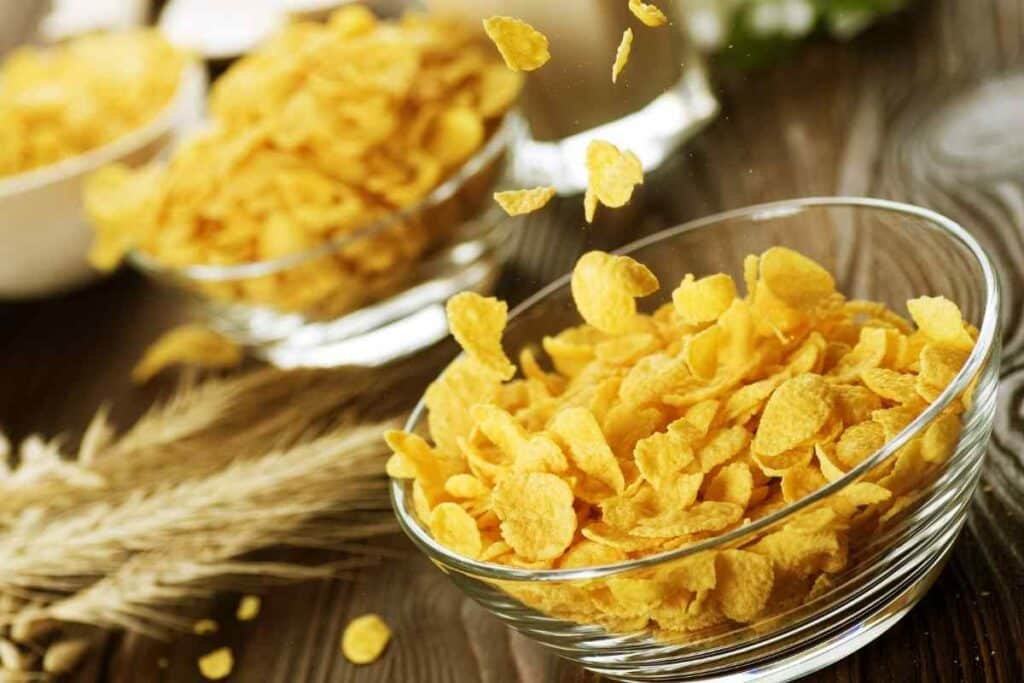
Firstly, cornflakes are made from corn, and secondly, they aren’t laden with the sugar that many breakfast cereals have in abundance, meaning that they are a healthier choice.
They may be a little bit salty but a popular bird table will mean visitors will not eat enough to have any problems from them.
4. Can Wild Birds Eat Cheerios?
Cheerios are a popular treat for wild birds who will fight over these tasty whole grain hoops.
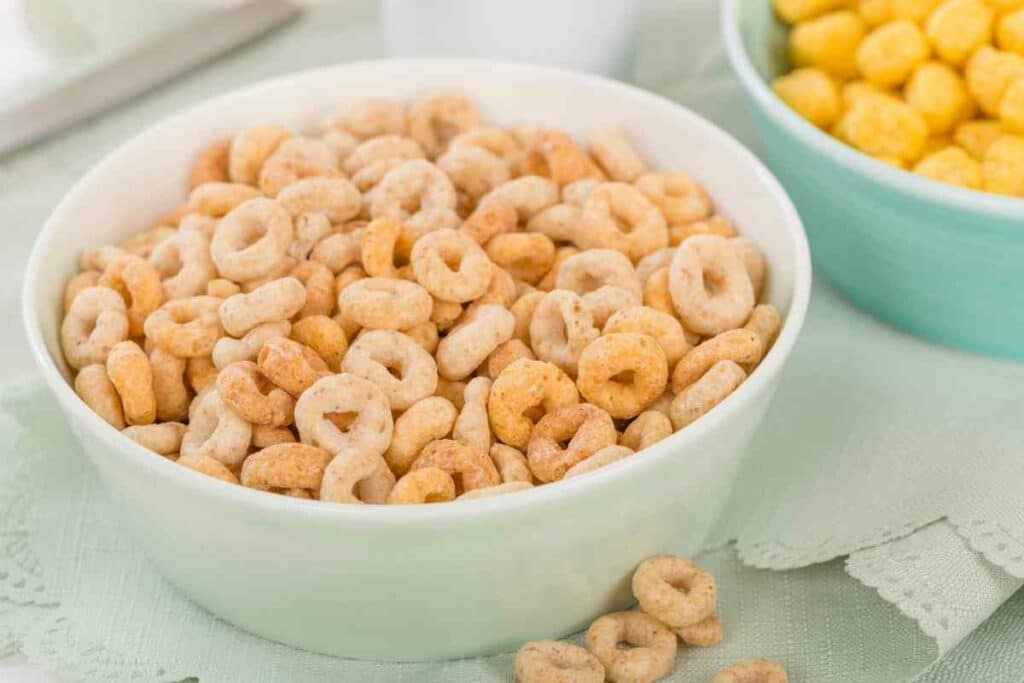
As with most treats, nothing should be to excess as Cheerios have added sugar amongst their ingredients.
They certainly should not be an excessive treat, but can be offered a few times per week or placed in a container, or threaded onto a piece of string to provide a challenge to your more gregarious bird table visitors.
5. Can Wild Birds Eat Muesli?
Muesli is a great wild bird food, full of wholegrains, dried fruit and nuts that all birds will love!
It is like a buffet for the birds as they can pick what they want.
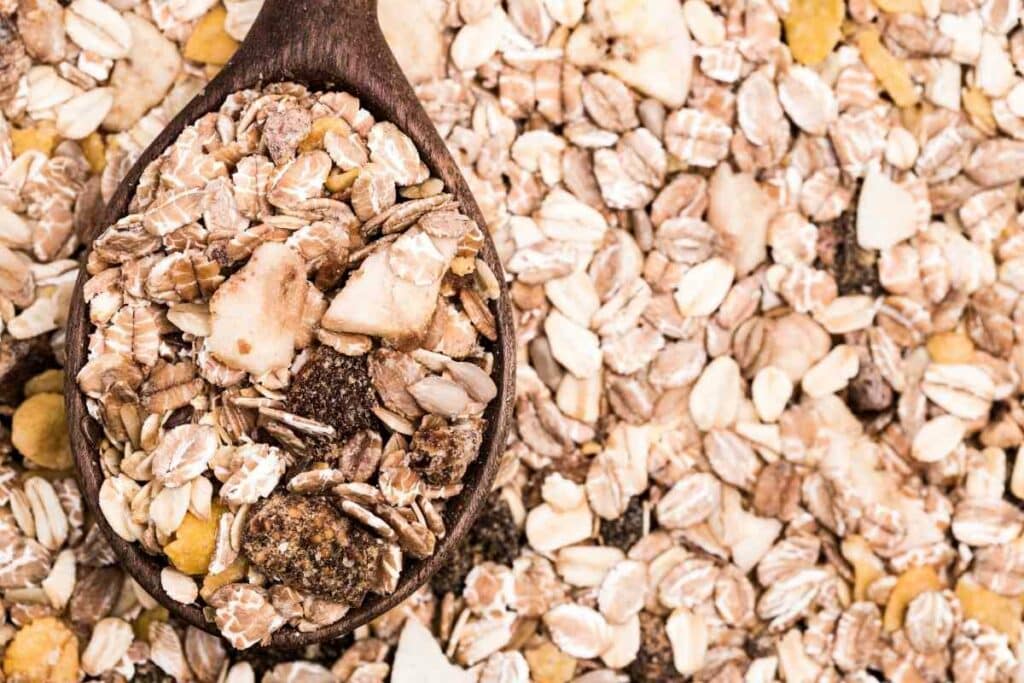
However, it is worthwhile to check that the muesli ingredients do not include added sugar, salt or whey protein, which will upset the digestion of the birds.
You can mix muesli with lard to make enticing fat balls that can be left outside for the birds to peck at.
If muesli is scattered on your bird table, don’t let it get rained on, as it quickly becomes soggy.
6. Can Wild Birds Eat Puffed Rice?
Puffed rice and puffed wheat are a simple sustaining food that all kinds of birds can eat and digest readily.
They are low sodium and low sugar. The only ingredients that may concern are preservatives like Butylated hydroxytoluene (BHT).
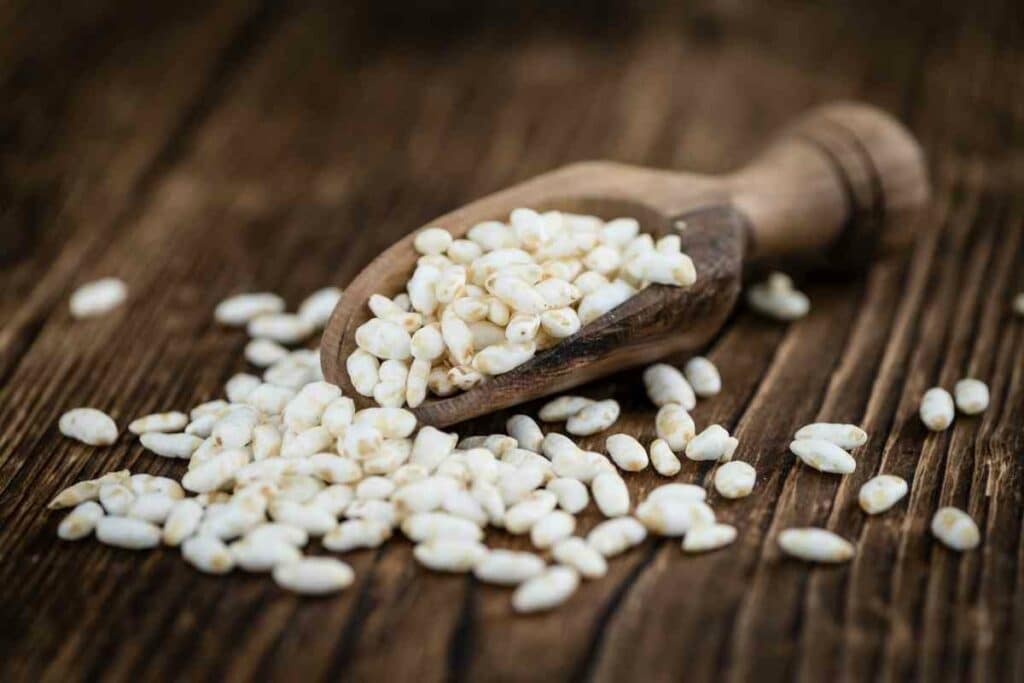
You can also provide rice cakes and corn cakes with puffed grains.
Though all birds can eat cooked or processed rice, only pigeons, pheasants and doves can eat raw rice, plain scattered puffed rice is best.
Always avoid added sugar and salt when serving puffed rice at the bird table.
7. Can Wild Birds Eat Oats?
Raw porridge oats that birds can peck at are an energy-packed winter food that can be fed to birds on a regular basis.
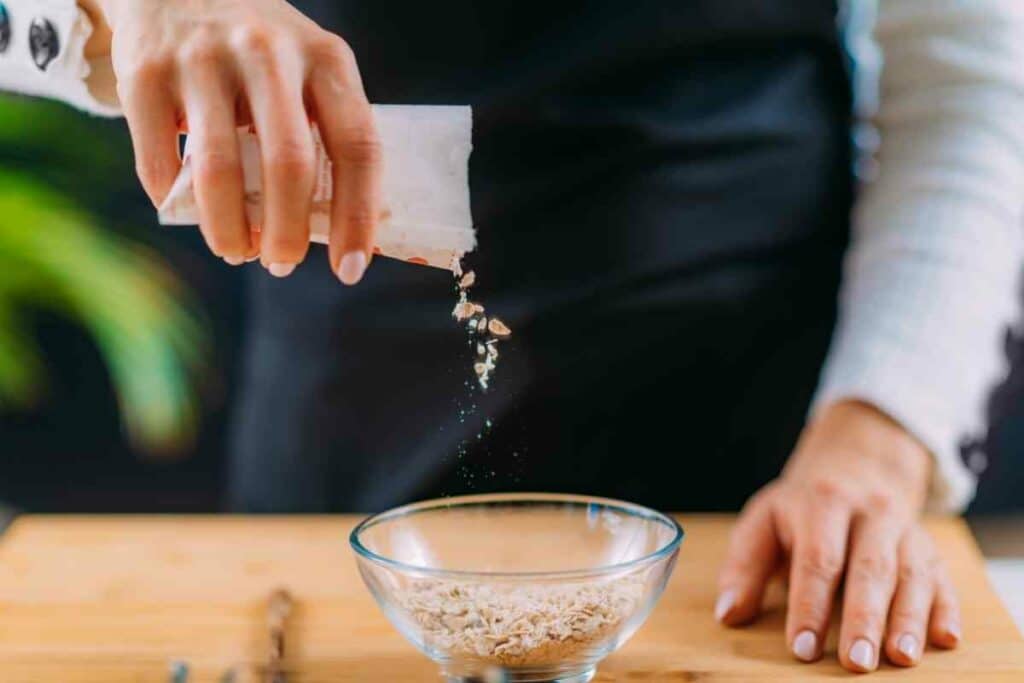
They are simple, all natural and easily digested by all wild bird species.
The only caution with feeding oats to wild birds is that they should not be cooked, as the glutinous porridge can “glue” their beaks together.
8. Can Wild Birds Eat Granola?
Granola will be a popular treat for winged visitors to your garden and typically contains the cereal grains, dried fruit and nuts your birds will love.
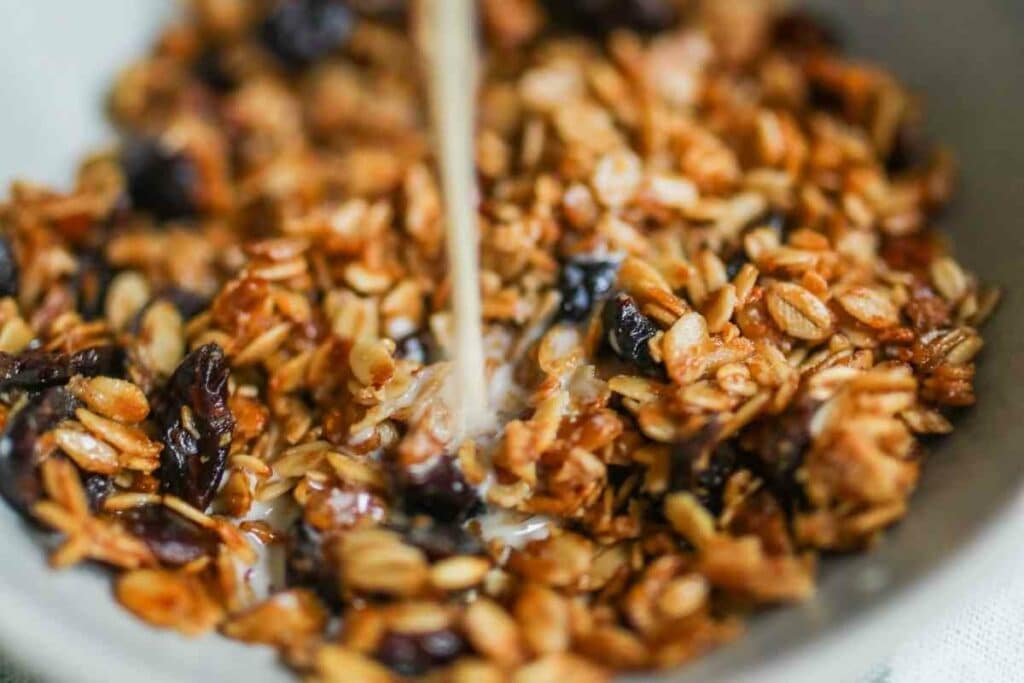
These tasty nuggets are even available in bird-friendly varieties that can can be purchased from pet stores
You can offer the major brands of granola to birds occasionally as their sugar levels can be extremely high as a variety of syrups and sweeteners are used to bind the granola.
Watch Out: Granola also may contain some substances that could be harmful to birds, like sulphur dioxide, a common preservative.
9. Can Wild Birds Eat Grape Nuts?
You either love them or loathe them, but your leftover Grape Nuts will get eaten up by your local birds if you scatter them outside.
Unlike many breakfast cereals, they make Grape Nuts with just whole wheat and malted barley flour, salt and yeast.
These ingredients are completely safe for birds and served in convenient nut-like portions.
10. Can Wild Birds Eat Golden Grahams?
The colour texture and taste of this cinnamon-flavoured breakfast cereal should indicate to you that you should never feed it to birds.
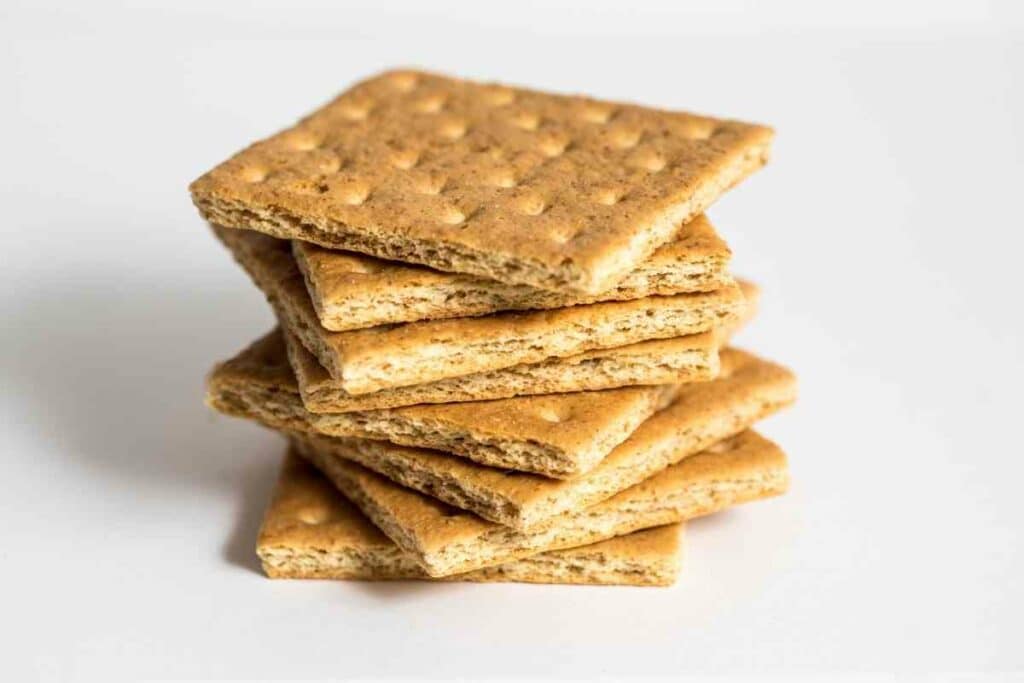
They contain a catastrophically exorbitant amount of salt and sugar with an adult serving size containing 13 grams of sugar and over 21% of the RDA of sodium, far outweighing the benefit of its wholegrain cereal ingredients.
11. Can Wild Birds Eat Bran Flakes?
Bran flakes should be suitable for garden birds and can be liberally scattered in your backyard.
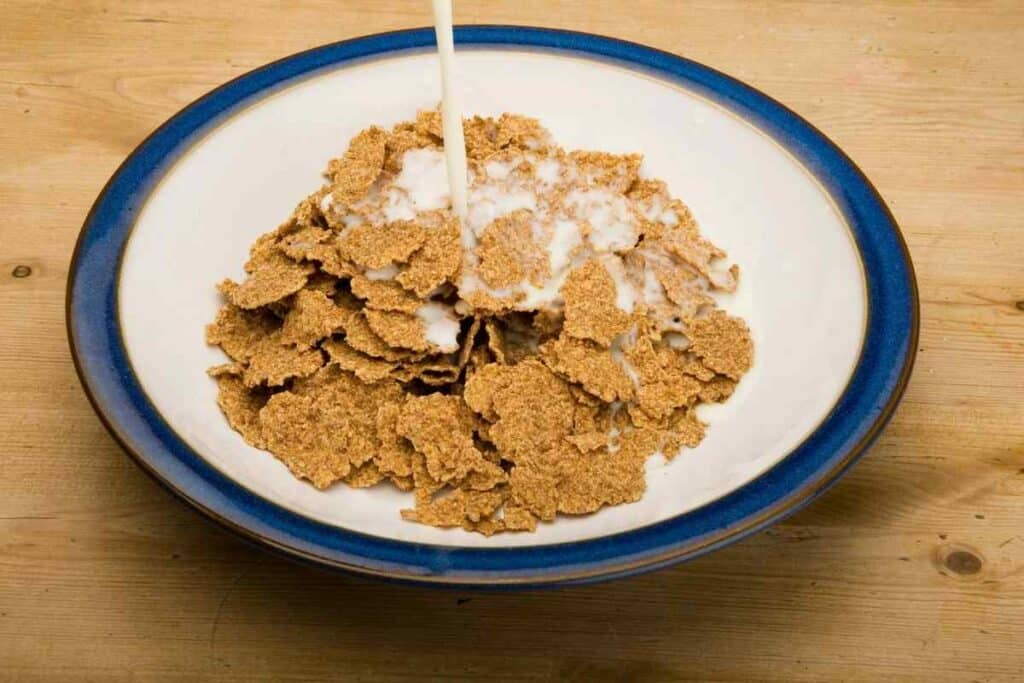
The flakes can be crushed so they are beak-size and mixed in with a regular bird feed or seed mix.
All-Bran or fruit and fibre can be fed to birds, but caution is needed if sulfur dioxide is present among the cereal ingredients.
Cereal makers use this preservative on dried fruit like banana and coconut.
12. Can Wild Birds Eat Weetabix?
Weetabix is a cheap and cheerful but filler that your feathered friends can peck at.
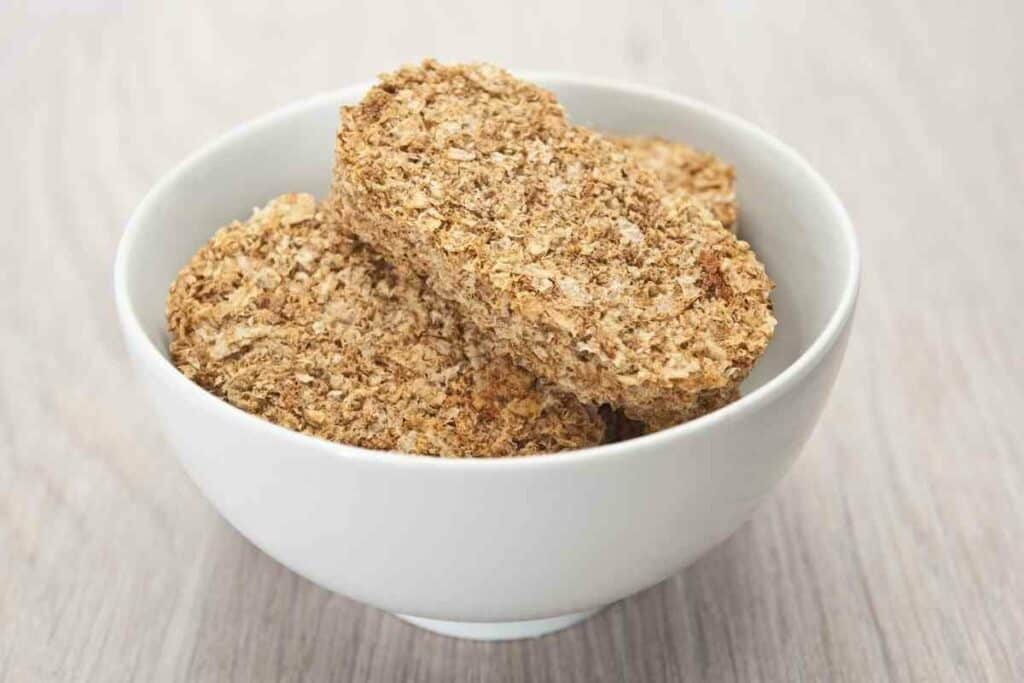
It has no added sugar and is low in salt meaning that this wholegrain cereal will do no harm.
You can simply throw a couple of Weetabix briquettes into your garden, or crumble Weetabix into your existing feed.
Because Weetabix is so dry, having a freshwater source nearby will provide birds with a refreshing drink after their dry meal.
Rounding Up
You will definitely find that your bird table becomes the hottest location in the neighbourhood with your local birds once a decent cereal is on offer.
Experiment with making fat balls, seed mixes and homemade granolas that include breakfast cereal to feed to your birds.
Remember to provide plenty of fresh water for the birds to enjoy with their meal!
